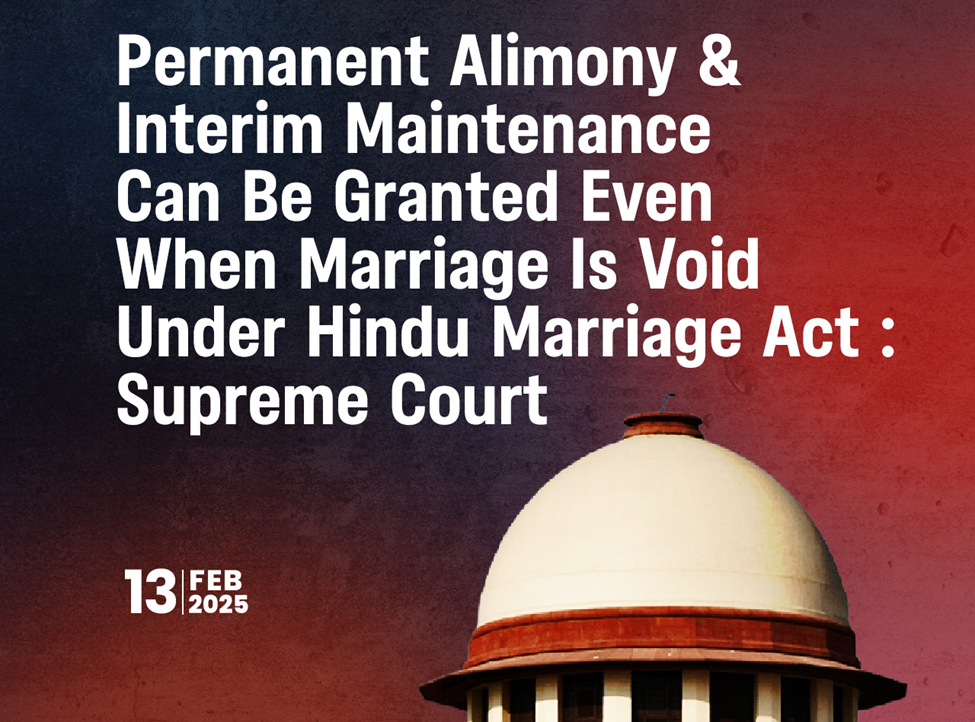Context:
In a landmark judgment, the Supreme Court of India has ruled that alimony and maintenance can be granted to a spouse even if the marriage is declared void under the Hindu Marriage Act (HMA), 1955.
Key issues addressed in the Ruling:
· Alimony and Maintenance in Void Marriages: The Supreme Court clarified that spouses in a void marriage are entitled to claim permanent alimony or maintenance under Section 25 of the Hindu Marriage Act. Despite the marriage being legally invalid, the right to financial relief remains unaffected.
· Interim Maintenance: The court further ruled that interim maintenance can be awarded during the pendency of a case under the HMA, even if the marriage is later declared void. Section 24 of the Act allows for the provision of maintenance, subject to specific conditions. The decision to grant such relief remains discretionary and depends on the conduct of the parties involved.
· Misogynistic Terminology in Court Judgments: The Supreme Court strongly criticized the use of derogatory and misogynistic terms such as "illegitimate wife" and "faithful mistress" in a judgment by the Bombay High Court. It emphasized that such language undermines the dignity of women and is inappropriate in legal proceedings, as it reinforces harmful stereotypes and prejudices.
About Void Marriages:
A void marriage is one that is legally invalid from the outset and is treated as though it never existed. Unlike voidable marriages, which require a court order for annulment, void marriages hold no legal standing, and the parties involved cannot claim typical marital rights or benefits.
Reasons for a Void Marriage:
1. Incestuous Marriage: A marriage between individuals closely related by blood (e.g., siblings or parent-child relationships) is considered incestuous and automatically void. Such unions are legally prohibited to prevent genetic concerns and uphold societal norms.
2. Polygamous Marriage: If one of the spouses is already legally married to another person, any subsequent marriage is considered polygamous and void. For instance, if a man remarries without legally dissolving his first marriage, the second marriage holds no legal validity.
3. Violation of Prohibited Relationship Degree: Marriages between individuals falling within a prohibited degree of relationship—such as close cousins or other near relatives—are void under the law. This rule ensures adherence to legal and cultural norms surrounding family relationships.
4. Marriage between Sapinda Relatives: A Sapinda relationship refers to a relationship connected through a common ancestor. Marriages within the Sapinda category (close blood relatives) are strictly prohibited and automatically void, as such unions could lead to inbreeding and disrupt social order.
Conclusion:
The Supreme Court's ruling reinforces legal safeguards for individuals in void marriages by ensuring their right to financial support through alimony or maintenance. By upholding these provisions, the judgment strengthens the legal framework protecting individuals whose marriages are later annulled or declared void, ensuring they are not left financially vulnerable.








